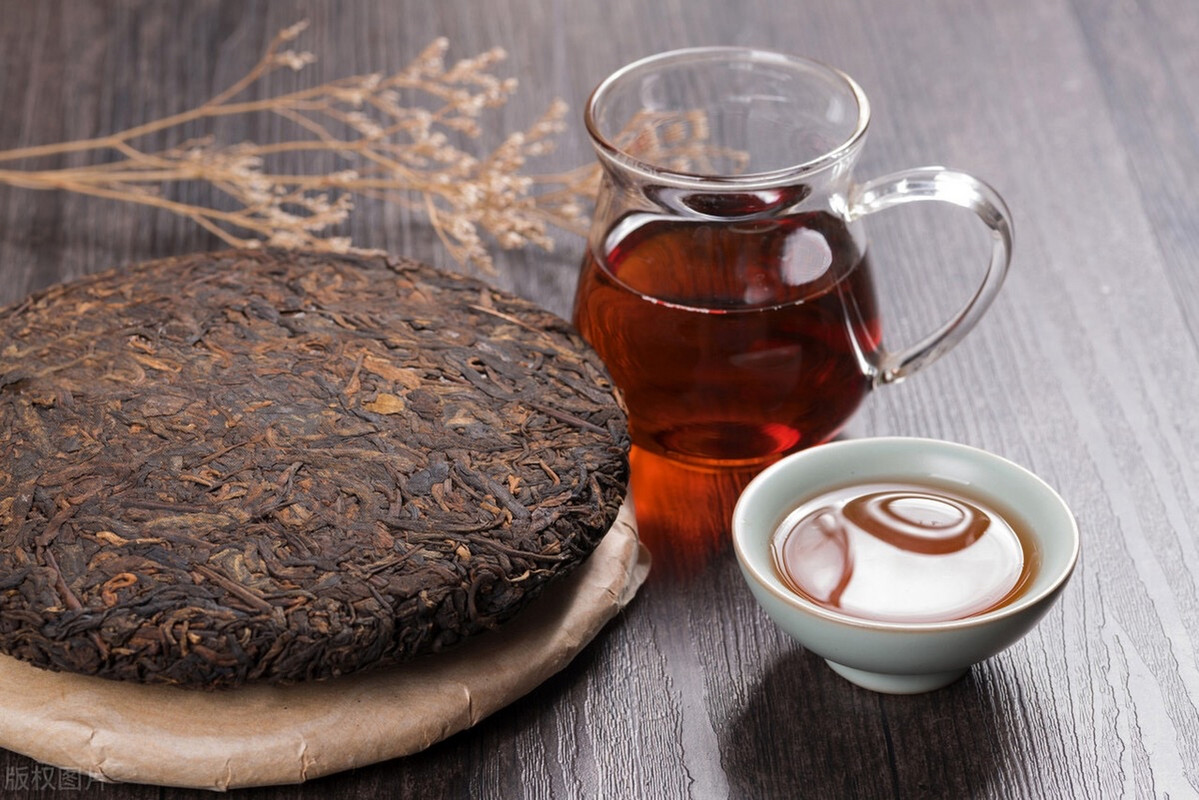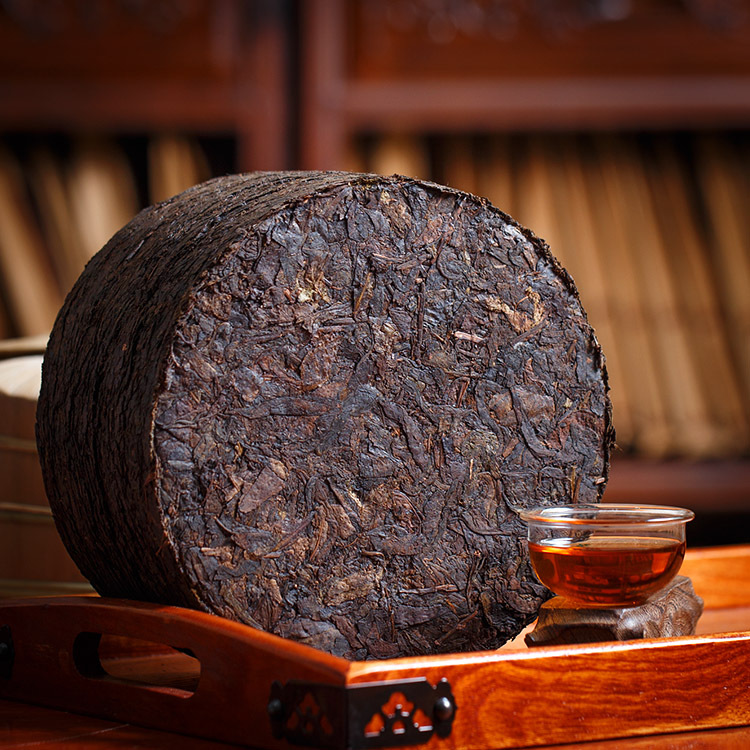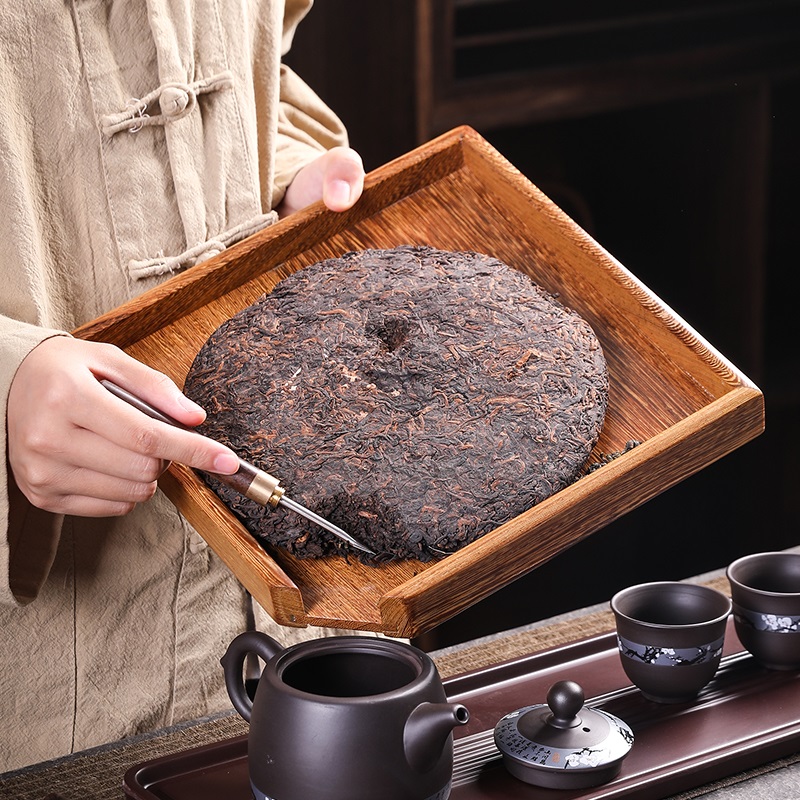Pu-erh, a distinct category of dark tea renowned for its aged complexity and microbial fermentation, offers unique health benefits but warrants caution in specific scenarios. Below are key considerations:

1. Caffeine Sensitivity
- Moderate Content: Caffeine levels (~15-35 mg per cup) are comparable to dark tea but vary by brew strength and aging.
- Risks: Insensitive individuals may experience insomnia, anxiety, or palpitations.
Advice: Limit to 4-5 cups daily or opt for low-caffeine aged sheng pu-erh.
2. Gastrointestinal Impact
- Tannins & Microbes: While fermentation reduces astringency, tannins and microbial byproducts may irritate sensitive stomachs or worsen IBS symptoms.
- Acidity: Sheng pu-erh’s higher acidity may trigger heartburn in GERD patients.
Recommendation: Drink after meals or pair with bland snacks.
3. Drug Interactions
Pu-erh’s polyphenols (gallic acid, theaflavins) and caffeine may interact with:
- Blood Thinners: Increases bleeding risk.
- Antibiotics: Reduces drug efficacy.
- Sedatives: Enhances drowsiness.
Critical: Consult healthcare providers before combining with medications.
4. Fluoride Concerns
Aged pu-erh (especially from certain regions) may accumulate fluoride, risking:
- Dental fluorosis in children.
- Skeletal fluorosis with prolonged high intake (>10 mg/day).
Caution: Monitor consumption if using fluoridated water or supplements.
5. Pregnancy and Lactation
- Pregnant Women: Limit caffeine to <200 mg/day. Pu-erh’s moderate caffeine requires tracking.
- Breastfeeding Mothers: Caffeine transfers to breast milk; limit to 3-4 cups daily to avoid infant irritability.
6. Heavy Metal Residues
Older pu-erh cakes (1990s-2000s) may contain lead or cadmium from soil or processing.
Mitigation: Source from certified organic farms or rinse leaves before steeping.
7. Mold Risks
Poorly stored or low-quality pu-erh may develop mold (e.g., Aspergillus species) producing mycotoxins.
Warning Signs: Musty odor, white/green patches, or bitter taste. Discard immediately.
8. Allergic Reactions
Rare cases of allergies to mold byproducts or tea proteins. Symptoms include hives or respiratory distress.
9. Overconsumption Risks
- Caffeine Dependency: Habitual high intake may lead to withdrawal symptoms (headaches, fatigue).
- Nutrient Depletion: Tannins may hinder absorption of iron, folate, and B vitamins.
10. Children and Adolescents
Limit caffeine intake due to lower body weight. Excessive consumption may disrupt sleep or behavior.
11. High-Temperature Brewing
Steeping at >95°C (203°F) extracts more caffeine, tannins, and fluoride, increasing bitterness and irritation risk.
Optimal: Brew at 85-90°C (185-194°F) for 3-5 minutes.
12. Liver Conditions
While pu-erh supports liver health in moderation, overconsumption (5+ cups/day) may strain hepatic function in those with pre-existing disease.
13. Oxalate Content
Pu-erh contains oxalates, which may contribute to kidney stone formation in susceptible individuals.
Caution: Avoid excessive intake if prone to calcium oxalate stones.
14. Aging and Storage
- Humidity Risks: Improper storage may promote mold growth or excessive microbial activity.
- Pesticides: Older cakes may contain residues; opt for modern organic options.
Final Recommendations
- Moderation: 4-5 cups daily (~60-175 mg caffeine).
- Timing: Avoid late-day consumption to prevent sleep disturbances.
- Quality Control: Purchase from reputable vendors and inspect cakes for mold/pest damage.
- Consult Professionals: Discuss with doctors if managing chronic conditions or medications.
By enjoying pu-erh mindfully, you can appreciate its depth and health benefits while avoiding potential pitfalls. 🍵🍂



